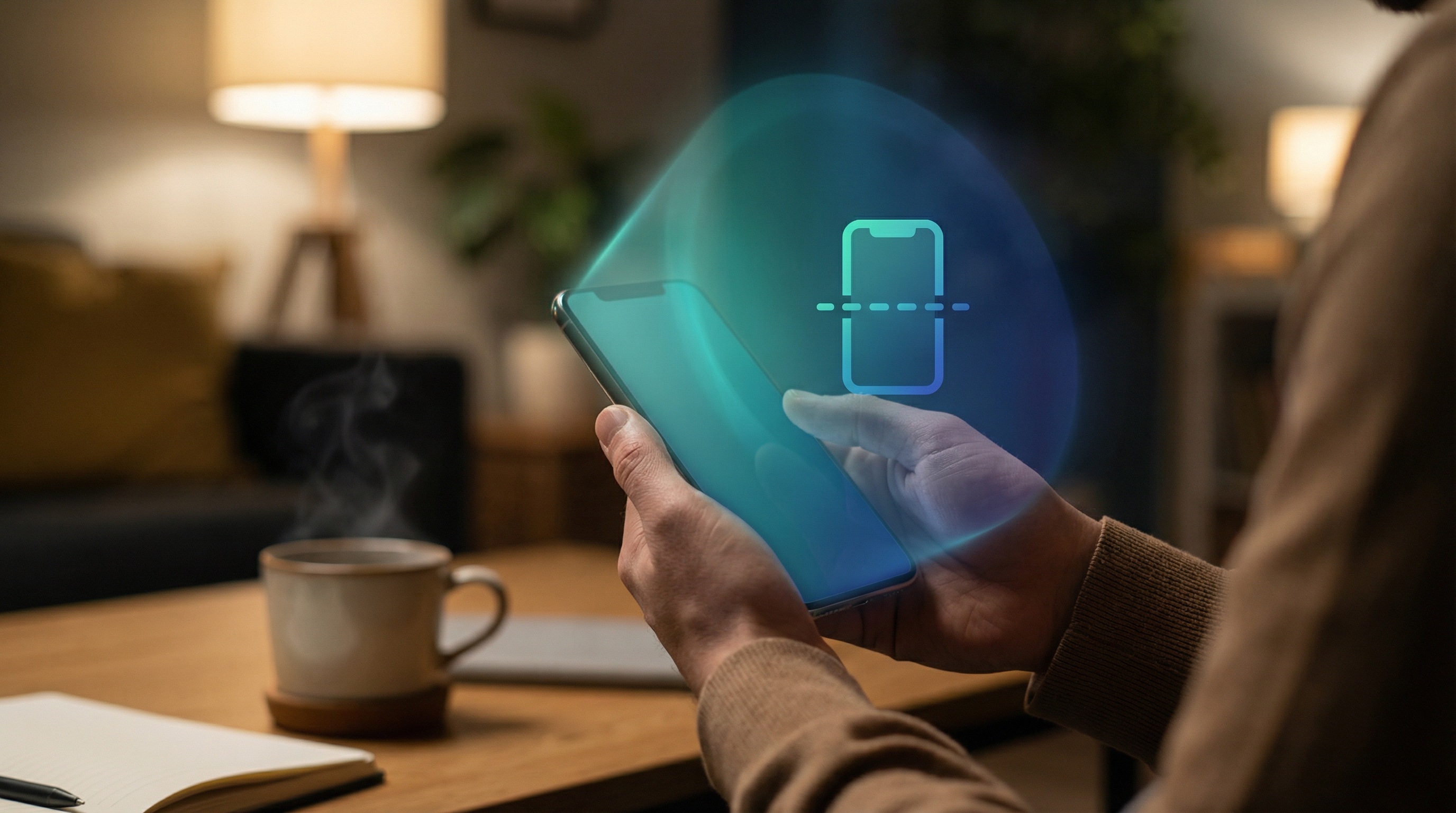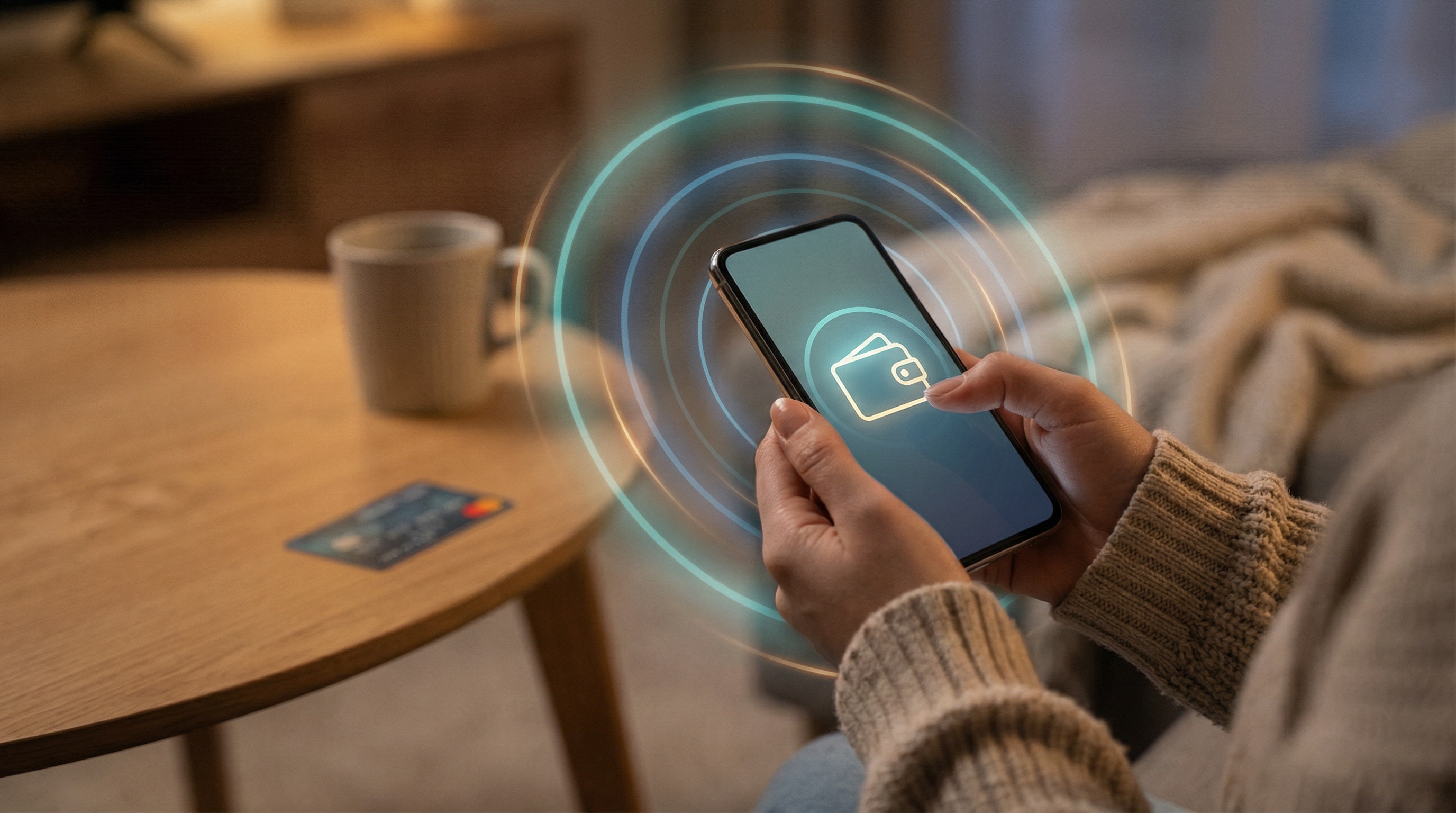Has your phone been cloned?

Key Takeaways
- Start with the safest fix: official settings and known-good steps
- Remove or disable suspicious extensions and downloads
- Avoid logging in from links; go to the official site directly
- If you entered details, change your password and enable two-step verification
- Real-time link protection helps reduce exposure to lookalike sites
Doppelganger alert: How to tell if your phone has been cloned
Remember the days when our cell phones were bulky, offering just black-and-white screens, and the pinnacle of technology was storing numbers and playing Snake? Fast forward to today, and it's a whole new ball game. Our cell phones have transformed into compact computers, unlocking doors to our social lives, financial realms, and an overload of apps for just about anything you can think of. They're not just phones; they're smartphones and basically manage every aspect of our digital existence. Unsurprisingly, this transformation has placed them firmly in the crosshairs of cybercriminals, armed with an arsenal of sophisticated techniques to breach our mobile defenses.
While the menace of computer viruses is well known, the notion of phone security tends to slip under the radar despite being equally threatening. Mobile phone threats, although less common, still pose a significant danger… Which smoothly brings us to the topic of this article: phone cloning.
70 million Americans lost over $40 billion due to phone scams in 2022
You might be wondering, "What exactly is phone cloning?" And we’re glad you asked, think of it like the sci-fi concept of cloning in movies, where a duplicate is created, but instead of a person, it’s your phone. Suddenly, there's an identical twin of your device out there, with someone else holding the leash. Got your attention? Great, because we're diving deep into the intricate world of phone cloning, detailing how it works and the risks involved. As always, we'll arm you with some tips highlighting how to detect if your phone has been cloned and, of course, introduce you to protective measures like Guardio. Let’s get this show started!
{{component-cta-custom}}

Understanding phone cloning
Nowadays, with the pace of technological advancements, we find ourselves upgrading our phones every few years. Phone cloning is a handy feature that lets you move all your stuff, like photos, messages, and apps, from an old phone to a new one, ensuring you don't lose anything important when you switch devices. It's a valuable tool that allows us to transition to the latest models without the fear of losing our precious data, making it an essential part of modern mobile tech life.
Cloning your phone can be as easy as asking your telecommunication service provider, downloading an app, or having the store where you bought your new phone do it for you. But there's a downside. The bad guys, aka scammers, have figured out that they can use cloning for their own sneaky motives. Think about it: if moving all your stuff to a new phone is easy for you, it could be just as easy for scammers to take all that stuff without you knowing. They could get their hands on your pictures, messages, everything in your accounts, even your financial information. This might sound like something out of a spy movie, but it's a real danger. It involves cybercriminals duplicating your phone's SIM and International Mobile Equipment Identity (IMEI) information to create a copy of your device. Now, before you get lost in the jargon, let's break it down.
Your SIM and IMEI are unique identifiers for your phone, like a digital fingerprint. When cybercriminals clone them, they gain the power to mimic your device, using it for everything from phishing scams to unauthorized transactions, all while pretending to be you.
How do scammers clone your phone?
Scammers have a bag of tricks up their sleeves for phone cloning, and here's a look at their go-to methods:
- IMSI catchers: Picture a device masquerading as a cell tower, known to the tech world as an IMSI catcher, or more dramatically, a "Stingray." Its role? To fool your phone into thinking it's connecting to a legit cell tower. Once the connection is made, this fake tower intercepts your phone's communications, making your personal information vulnerable and paving the way for cloning. Crazy right?
- Over-the-air (OTA) attacks: Imagine cybercriminals launching invisible attacks through the very air your phone relies on for data. These over-the-air attacks exploit vulnerabilities in your phone's software from a distance, allowing attackers to take control without ever physically touching your device. It's a high-tech heist that can leave your phone cloned and your digital life exposed without a single warning sign.Here’s how it typically unfolds:
- Exploiting weaknesses: Scammers look for security gaps in the phone's operating system or applications that can be remotely accessed. This could be outdated software, unpatched vulnerabilities, or insecure network connections.
- Sending malicious commands: Once a vulnerability is identified, the attacker sends malicious commands or software updates to the targeted device over the air. This could be done through WiFi, cellular networks, or Bluetooth.
- Installing malware or cloning software: The malicious command prompts the installation of malware or cloning software on the phone. This software is designed to secretly copy the phone’s SIM and IMEI information.
- Gaining control: With the cloned SIM and IMEI information, attackers can create a duplicate of the phone that mirrors the victim's device. This clone can then receive messages, make calls, and access online accounts as if it were the original phone, leading to data theft, financial fraud, and privacy breaches.
- The app trap: Not all apps promising to track your steps, monitor your sleep, or even provide endless entertainment are what they seem. Exercise apps and other seemingly beneficial applications can often be trojan horses. Crafted to like legit applications, these malicious apps ask for permissions that seem standard but are actually gateways for hackers to access and clone your phone. The danger isn't in the app's functionality but in the unseen code designed to infiltrate your digital sanctuary and replicate your phone's data.
- SIM swap heist: Picture a scenario where a scammer masquerades as you, sweet-talking your mobile carrier into transferring your number onto a new device. If they succeed, in an instant, they've secured backstage access to your digital life, hijacking your texts and calls. What’s even worse, they stealthily infiltrate your bank and social accounts. But there's even more: the silent menace of malware, sneaking onto your phone, pilfering information, spying on every interaction, and potentially locking you out of your own digital domain.
Don’t let these nightmarish scenarios scare you. This is where you can step up as the hero of this digital tale. Strong passwords, a healthy dose of skepticism towards strange messages, and keeping a watchful eye on your accounts are your first line of defense. But, as cyber villains get craftier by the day, beefing up your security game with a trusty sidekick like Guardio isn't just nice to have—it's a must. Guardio's on guard 24/7, throwing up barriers to keep the bad guys away and making sure your phone's evil twin stays firmly in the realm of make-believe.
{{component-cta-custom}}

How to know if your phone is cloned: 6 Signs of phone cloning Signs
While phone cloning scams might operate stealthily, slipping under your radar, they’re not without their telltale signs. If you know what to look out for, you can catch these digital doppelgängers and protect yourself against phone cloning. Here are some phone cloning symptoms that should sound the alarm bells, signaling your phone might have been cloned.
1. Mysterious restart request: Out of the blue, you get a text nudging you to power off your phone for a reboot. Little do you know, this seemingly innocent request might just be a cybercriminal's way to momentarily sideline your device, giving them the perfect chance to introduce a clone of your SIM into the digital wild.
2. Phantom calls and texts: Ever glanced at your phone bill and spotted calls or messages that scream "not me!"? These communications, coming from a cloned SIM, potentially rack up your bill with unseen international adventures. Keep a hawk's eye on your monthly charges, especially when they’re unexpectedly high.
3. Phone silence: Calls and texts you were eagerly awaiting have vanished into thin air. They may have been hijacked to another device via SIM swapping. Test the waters by asking a friend to call you. If your phone stares back in silence, something fishy is going on.
4. Wrong location on 'Find My Phone': Peek into your 'Find My iPhone' or Google’s 'Find My Device'. If you discover your phone has been gallivanting in places you've never been, this could be a definite sign of phone cloning.
5. SIM update alert from your carrier: If you get a network alert via text or email about a SIM update you never requested, red flags should wave furiously. Sadly, if the SIM is already swapped, this crucial alert might just miss your inbox, leaving you puzzled as to why your phone's suddenly gone silent.
6. Lockout from your digital realm: Finding yourself locked out of your own email and social media accounts? Ding ding ding… Your phone has probably been cloned, or accounts hijacked. In both cases, scammers have control over your accounts, so they can easily swap passwords, change account details, and snatch your personal information.
If you're noticing any of these unsettling events unfolding with your phone, it's a strong indication that it might be time to ring up your service provider or even reach out to the authorities. Ensuring your digital safety is important, and taking quick action could help you avoid further complications and secure your personal data.
Preventing phone cloning: Smartphone safety tips
As you've seen, phone cloning is a real danger. Here are ways you can protect yourself:
Keep your phone secure: Never let your phone out of your sight or in someone else’s hands. Physical access is crucial for cloners due to stringent network security.
Use strong lock screens security: Protect your phone with a PIN or biometric (fingerprint, face ID) password, preventing unauthorized access if lost.
Turn off Bluetooth and WiFi: When not in use, disable these to avoid wireless interception of your data.
Set up multi-factor authentication (MFA): MFA Adds an extra layer of security, making it harder for unauthorized users to access your accounts if your phone is cloned.
Use cybersecurity software and apps: Installing security apps like Guardio helps in identity theft prevention by protecting you from clicking on harmful links or emails that might introduce malware, opening doors for scammers to clone your phone. It provides all-around security for every device you own, with a single account extending coverage to up to five family members. Plus, there's a 7-day free trial, giving you the freedom to try it out. If it meets your needs, great! If not, you can cancel anytime without hassle.
{{component-cta-custom}}{{component-tips}}
Being picky about app permissions isn’t paranoid—it’s smart. Every blocked permission is one less way for a scammer to sneak in.
The bottom line
From bulky bricks to sleek smartphones, our phones have evolved into central hubs for our digital lives. However, this transformation has made them prime targets for cybercriminals, with phone cloning being a particularly sneaky threat. This cloning isn't sci-fi fiction; it's a real risk to our digital identity, allowing scammers to steal personal data and meddle with our finances.
Equipped with the knowledge of what phone cloning entails, its methods, and smartphone safety tips, you're already on firmer ground. But don't stop there. Leverage the protective measures available to you, like Guardio, to fortify your defenses against such threats. Remember, in the digital age, being proactive about your cybersecurity isn't just wise—it's essential. So, stay informed, stay alert, and let's ensure our digital journeys remain safe and enjoyable. With the right tools and knowledge, the power to protect our digital lives is firmly in our hands.
{{component-cta-custom}}
FAQs
How can I tell if a how to detect phone cloning message or page is real?
Start by verifying where the link goes and who sent it. If anything feels rushed or unusual, do not click. Open the official site or app directly and check your account there.
What should I do if I already clicked or entered details?
Close the page, then sign in from the official site to review recent activity. If you entered a password, change it and enable two-step verification. Watch for unusual messages, logins, or transactions.
What is the safest way to verify Has your phone been cloned??
Use a trusted path: type the site address yourself, use a saved bookmark, or open the service app. Avoid verifying through message links, especially when the message creates urgency.
What is the fastest safe first step for Has your phone been cloned??
Start by verifying the source using official channels (official website/app) rather than clicking message links. Then follow step-by-step checks.
What are common red flags to watch for?
Urgency, unusual links, and requests for sensitive details are common red flags. When in doubt, verify through a trusted path.
What should I do if I already clicked?
Close the page, change passwords for any account you entered, enable two-step verification, and review recent account activity.








